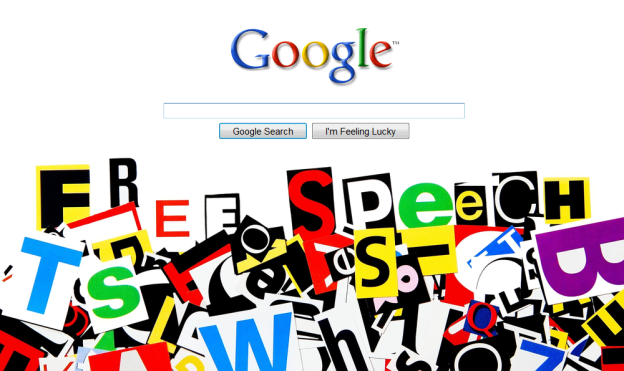
Google search results are protected free speech, argues legal scholar and blogger Eugene Volokh. And because of this, any antitrust ruling against Google that would force changes to the order of its search results wold be a violation of Google’s First Amendment rights.
As Volokh, who teaches at the UCLA School of Law, explains in detail in a Google-commissioned white paper published Wednesday, the order of search results is akin to the layout of a newspaper; newspaper editors have the right to choose which stories to run, where in the paper to run them, and how much space to give these stories. Similarly, Google has the right to choose the order in which its search results appear — even if that means pushing links from Google competitors lower in the stack.
“The judgments are all, at their core, editorial judgments about what users are likely to find interesting and valuable,” Volokh wrote. “And all of these exercises of editorial judgment are fully protected by the First Amendment.”
Volokh’s white paper, written with attorney Donald Falk at Google’s request, comes amid an antitrust investigation of Google by the Federal Trade Commission (FTC). A number of businesses have accused Google of unfair competition practices, which are illegal under Section 5 of the FTC Act, for promoting its own products over that of its competitors. The companies who claim to have lost significant traffic and revenue include Expedia, Trip Advisor, Yelp, and others.
The FTC has not yet decided whether or not to bring an antitrust lawsuit against Google, or how exactly to go after the Internet giant if it does. However, such a suit looks likely, as the Commission opted to bring in renowned litigator Beth Wilkinson, an attorney with Paul, Weiss, Rifkind, Wharton & Garrison who is best known for convicting Oklahoma City bomber Timothy McVeigh, to lead its investigation.
Part of the difficulty for the FTC is that Google’s service is free, which makes it difficult to prove that consumers are hurt by its link-bumping practices. Furthermore, a variety of other search engines exists, so anyone who doesn’t like how Google does things can easily use another service instead. As Google has long maintained, “competition is one click away.”
If the FTC does decide to go after Google for breaking antitrust laws, the outcome could have sweeping consequences for both Google and the Web at large. According to Volokh, if the FTC wins an antitrust lawsuit against Google, it could fundamentally undermine all forms of free speech online.
“What can be said about Google, can be said about newspapers, encyclopedias and a wide range of information sources,” said Volokh in an interview with The Hill. “I would be very worried if I were any other speaker on the Internet.”
“You can’t restrict speech just because it’s unfair,” he added.
Critics of Google’s search practices argue that the First Amendment does not allow companies to undermine competition.
Image via Margaret M Stewart/Shutterstock


